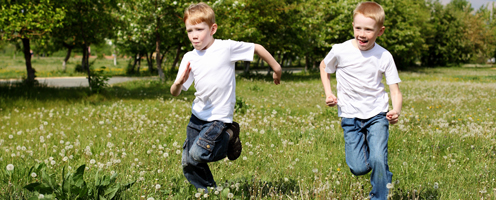Researchers to map the social mobility of siblings
The European Research Council has awarded the prestigious ERC Starting Grant worth DKK 11 million, to sociologist Kristian Karlson for an ambitious research project designed to identify areas in which there is the potential to promote social mobility.

Does the first-born child have a higher chance of social mobility than the second-born? Is there a link between welfare policy and siblings’ opportunities to break with their social background?
A new research project draws on data on siblings and social mobility throughout the 20th century from ten countries in order to analyse interrelationships between family structure, welfare policy and social mobility.
- The project’s aim is to provide more precise suggestions on how governments can promote social mobility, while also taking into account the importance of siblings and patterns within the family, says associate professor Kristian Karlson, Department of Sociology, Faculty of Social Sciences, University of Copenhagen.
Siblings’ lives often diverge
Although siblings are raised in the same milieu, they often take significantly different paths in life. Research from several countries shows notable differences in siblings’ level of education for example. Yet, most studies of social mobility concentrate on the individual, which means that they overlook issues such as the siblings’ position in their family.
- Research shows, for example, that birth order has an effect on the level of education. On average, later-born siblings spend less time in education, says Kristian Karlson.
Karlson, along with several other researchers, will attempt to identify, which families that exhibit similar patterns in terms of siblings’ experiences of social mobility:
-My hope is that we will be able to identify types of family that share the same patterns, and study how the welfare policies influence social mobility in relation to these patterns. In the Danish context, for example, this could be the significance of policies related to child allowance or student grants, he adds.
- The project involves basic sociological research into one of the major challenges of our time – how social inequality is transmitted from generation to generation. I see the prestigious ERC Starting Grant as recognition of the fact that Kristian Karlson’s project contributes original research ideas to a field that is the focus of a great deal of political interest, says Janus Hansen, head of the Department of Sociology.
Danish twin data to provide more precise knowledge
The analyses will be based on high-quality data from ten countries – including Denmark, Germany, France, Sweden and the USA.
The Danish data will also be based on more than 30,000 pairs of twins born in the period 1931–1979. The comprehensive data work involved, means that the project will involve a three three-year, full-time postdoc positions focusing aspects of methodology, data, and empirical analyses. The project is expected to start in Spring 2020.
Contact: Associate Professor Kristian Karlson, mail:kbk@soc.ku.dk, phone + 45 35 32 15 88
Sources:
Topics
Related News
Contact
Associate Professor Kristian Karlson
Mail: kbk@soc.ku.dk
Tel: + 45 35 32 15 88
Communications Officer Maj Bach Madsen
Mail: mbm@samf.ku.dk
Tel: + 45 35 32 63 50
ERC Starting Grant
Read more about the European Research Council’s Starting Grant.
